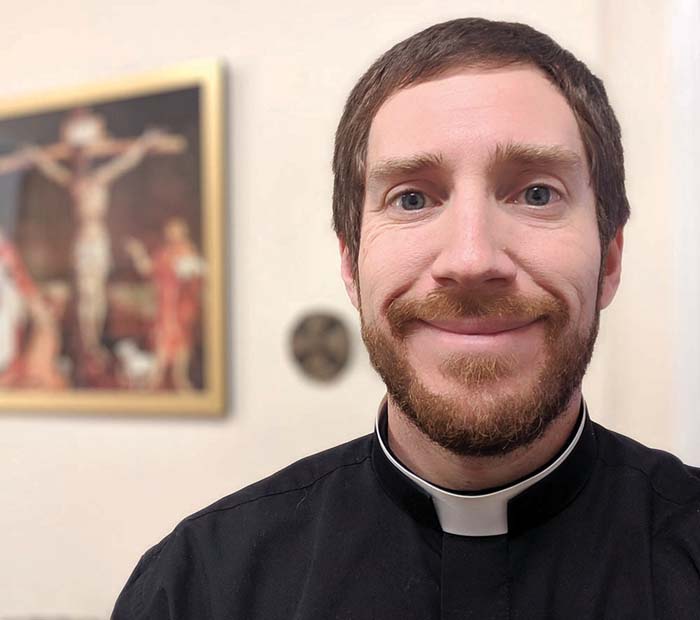My Turn, Robert Black: Striving for beloved truth
Published 12:00 am Thursday, July 29, 2021

- The Rev. Robert Black, rector of St. Luke's Episcopal Church.
By Rev. Robert Black
“If we say that we have no sin, we deceive ourselves, and the truth is not in us.” These words from the New Testament letter of 1 John are often used to begin the prayer of public confession of sin in Christian worship.
Taken seriously, these words remind us that every person, including you and me, is infected by something like a disease called “sin.” Sin can be doing things that we ought not to be doing, not doing things that we ought to be doing, and even participating in evil through ignorance. Christians understand that no one is exempt from the effects of sin (Psalm 14, Romans 3); to claim otherwise is lying.
It is this understanding that we (both as individuals and society) are broken, flawed and imperfect that informs our understanding of history, relationships, and society. If we think that we have done everything correctly and are free from all bias or mistakes, then the truth is not in us. When it comes to conversations about race, we begin by confessing that we have fallen short.
While the Christian faith rests on the grace of God to forgive us of our sins even if we have not earned such mercy, grace does not mean there is nothing left to do. Forgiveness is not merely a status that is conferred to us; rather, forgiveness is something we participate in. Grace is a gift that is intended to be used for the transformation of our lives. This is what we mean when we speak of repentance, a word that means to have a change of mind, heart and priorities.
This is why striving for beloved community is such an important aspect of my faith in Jesus Christ and a priority for the church that I serve (St. Luke’s) and the organization that I am a part of (Racial Equity Rowan). In pursuing beloved community, we take the risk of naming inconvenient and uncomfortable truths because we know that we are God’s beloved and have been given the gift of mercy. There is no need to hide from the sins of racism because the love of God is stronger than any brokenness that we create or participate in. But in dismissing or ignoring the damage caused by racism, we are merely deceiving ourselves and the truth is not in us. We engage in this work because we trust that the love and grace of God are strong enough to bear the weight of our sins, known and unknown, things done and left undone.
But simply naming these truths is not all there is to do. The forgiveness, the making right, that God has done in Christ is something that the church is given to be a part of. Forgiveness is not something we are given, as in a get-out-jail-free card; rather, it is a new creation, a new way of being in this world. So, telling the truth, standing up for justice, changing our minds, seeking racial healing — these are not a political agenda; they are ways in which people of faith use and enjoy the forgiveness that we have so graciously been given. Something is missed out on when we deny the truths of our past and present: we miss out on just how amazing grace can be.
I invite and encourage you to be a part of the events on Aug. 6-7 hosted by Actions in Faith and Justice and the Equal Justice Initiative, as this is a part of what it means to become beloved community: truths are named, repentance pursued, and healing grace abounds.
Robert Black is the rector of St. Luke’s Episcopal Church and member of Racial Equity Rowan Steering Team.

